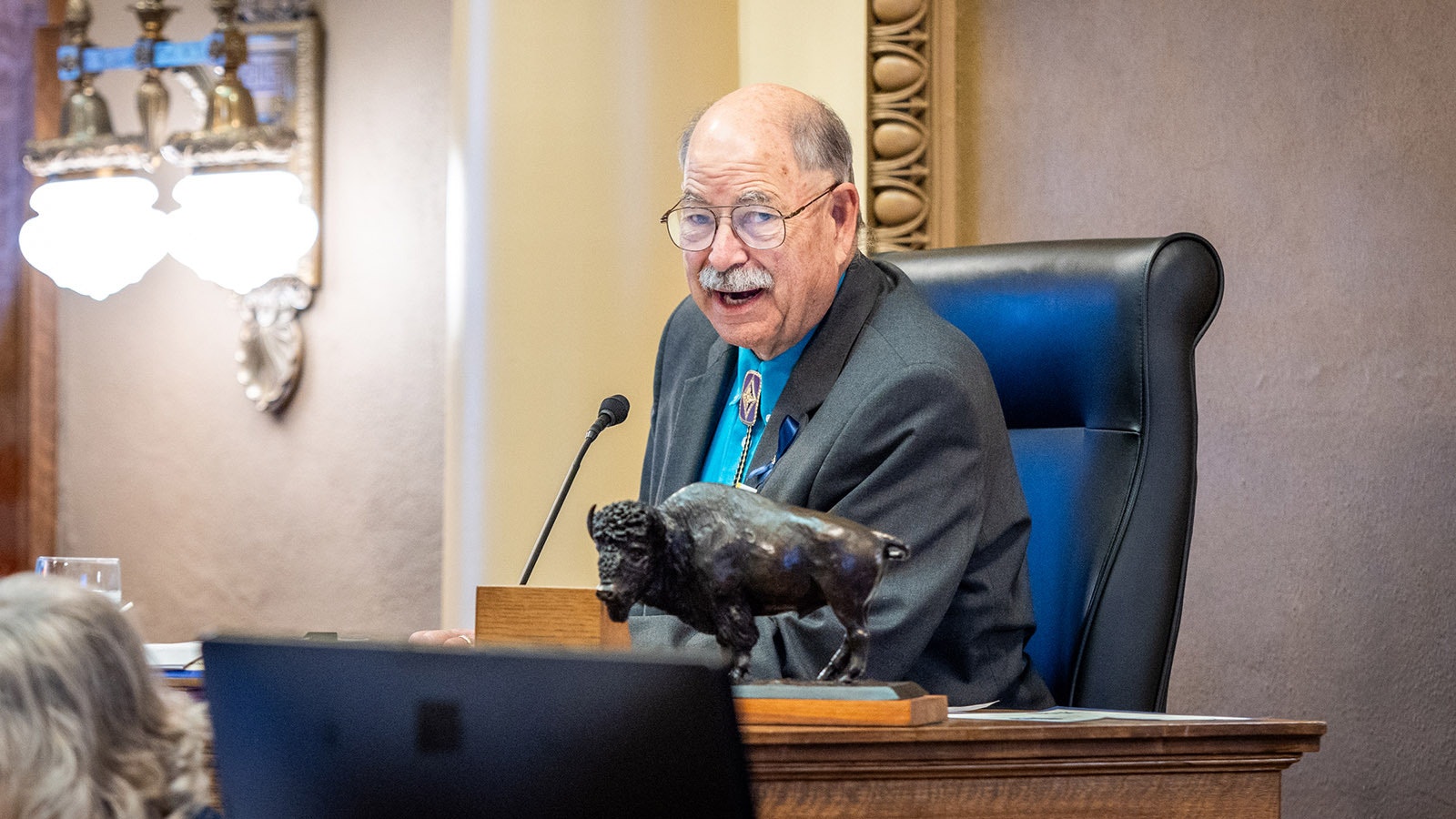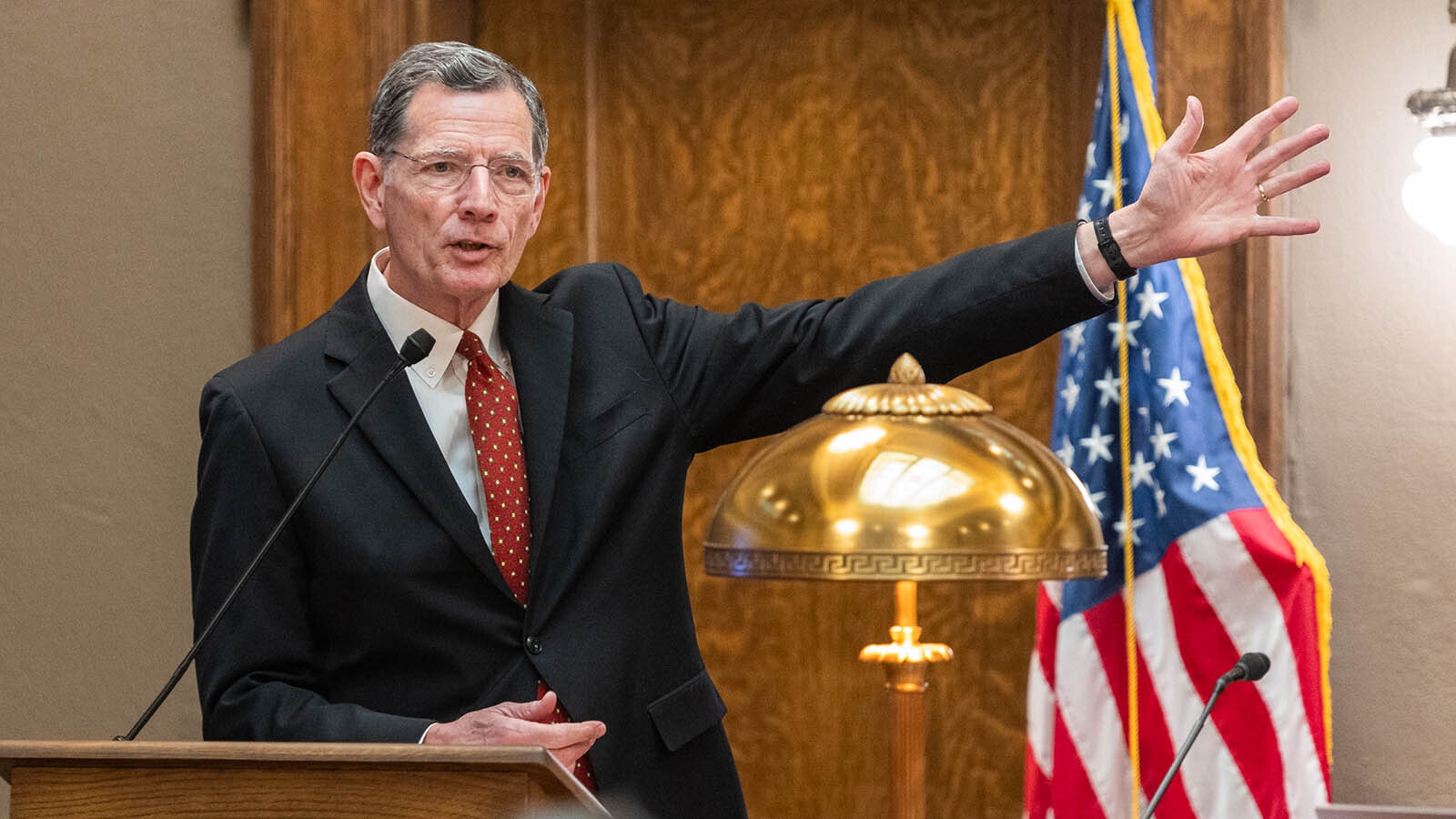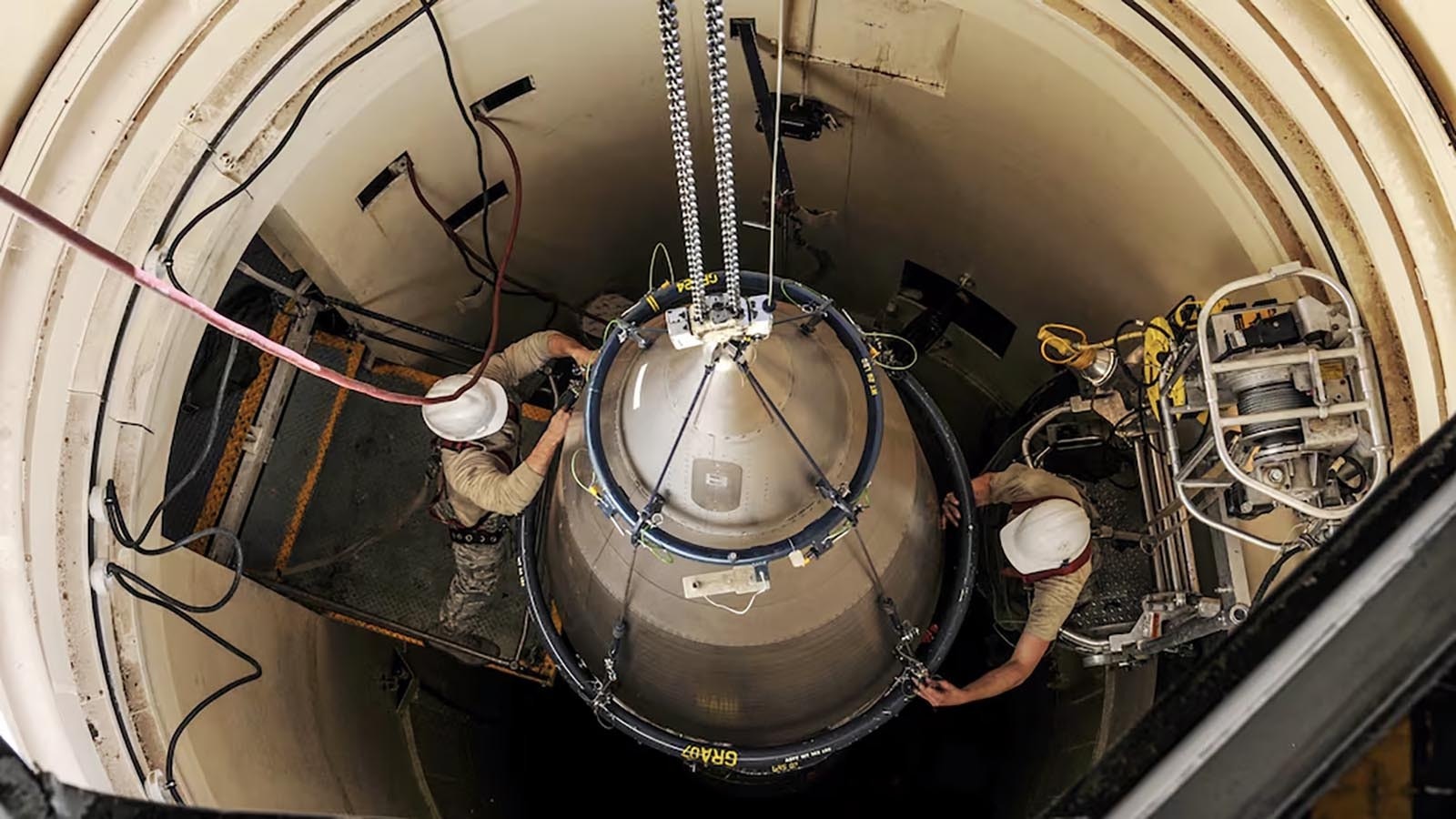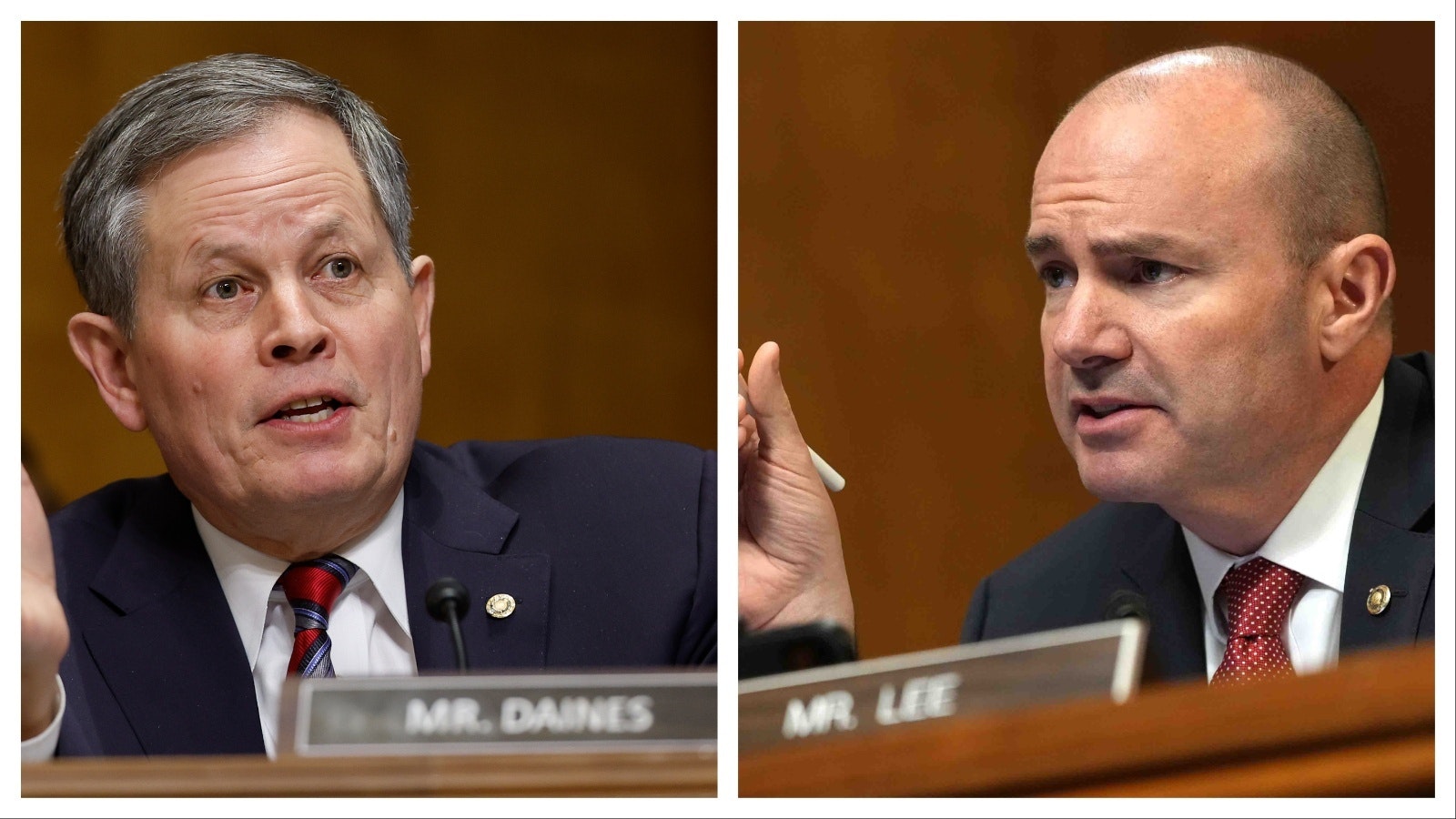Wyoming Senate President Ogden Driskill believes his chamber has become a “divisive, mean body” of legislators who instead of working to make a better Wyoming engage in personalized attacks and self-serving agendas.
He said members of the Senate need to take a hard look in the mirror and decide what they want Wyoming’s government to stand for.
“We’re not going to pay our employees well (that) we don’t really care a whole lot about, and what we want is a very de minimis government that does the baseline of things,” Driskill said.
One of his chief complaints is the $9.7 billion biennial budget proposal that came out of his chamber. Although Driskill voted for it, he said doing so was a “painful” experience because of the many aspects of it he disagreed with.
Where It Stands Now
The biennial budget is now being negotiated between the Senate and House.
Driskill appointed Sen. Dave Kinskey, R-Sheridan, to be the chair of the Senate’s Joint Conference Committee (JCC), a group charged with representing the chamber’s interests in its negotiations with the House over the biennial budget.
After receiving the House’s $651 million in proposals Thursday afternoon, the Senate JCC has not had any further meetings and does not plan to meet again until Monday morning for an executive session. This delay is a bit surprising considering the midnight Monday deadline to finish the budget in time to overturn Gov. Mark Gordon’s vetoes.
If a special session needs to be called after all the days expended for the legislative session have been exhausted, doing so will cost around $100,000 a day. To override Gordon’s vetoes, a special session would have to be held over a minimum of three days, but Driskill estimates a special session would likely run for about six days.
He finds the fact that the Senate voted against bills that would have increased salaries for judges and police officers with similar overall fiscal costs to this “hurtful.”
“I think it’s really disingenuous to force cuts back upon them that way,” Driskill said. “Our body willingly did that.”
What Happened?
Driskill’s also frustrated that Kinskey and fellow Senate Appropriations Committee member Sen. Tim Salazar, R-Riverton, didn’t defend the same budget items on the Senate floor that they voted to support during the interim budget meetings.
When asked about it on the floor, Kinskey said he had “buyer’s remorse.”
Kinskey did not immediately respond to Cowboy State Daily’s request for comment.
“It was the first time in my life I saw a committee go against its own bill,” Driskill said.
Sen. Mike Gierau, D-Jackson, another Appropriations member, said Kinskey’s actions ran contrary to what he did himself, defending the decisions his committee made even if he didn’t personally agree with them.
“It was really frustrating to me when the new chairman got up and argued against the position that we worked two months on the budget for,” Gierau said.
The Senate’s final budget sits at $9.7 billion, about $1 billion apart from the budget created by the House. The budget that came out of the Joint Appropriations Committee was about $10.7 billion, which Gierau said was still filled with many positions favored by Senate members of the committee.
“It’s pretty tragic that we spent the whole interim developing a budget that we totally threw away on the first day,” Driskill said. “That is absolutely a disservice to the entire Appropriations Committee.”
Sen. Larry Hicks, R-Baggs, disagrees, seeing the budget as a solid position that represents the desires of the Senate.
“I think the budget reflects the position of the two bodies,” Hicks said. “The Senate is no doubt a much more conservative body than the House.”
No Communication?
Gierau said there wasn’t a single person in the Senate who voted against the budget pieces that came out of Appropriations who spoke to him about issues they had before doing so.
Driskill said the best way to craft policy is with communication and working through issues together.
These two senators may be miles apart on many issues, but Gierau said they can always work through issues by talking it out.
“You do it as friends, not as enemies and posturing,” Driskill said. “We’re really at the point right now, we’re posturing.”
Hicks believes posturing on the budget has been limited to the actions of House members.
With so many large requests made by the House that run contrary to the Senate’s budget, Hicks said it will be difficult to get momentum going for the negotiation process.
“That’s not how you start out coming into a collaborative position with reasonable minds,” he said.
But he also remains optimistic that a budget will eventually come out.
“It’s not what you want, it’s what do you have to have?” Hicks said.
Driskill believes certain members of the Senate are making votes strictly based on their ambitions for the next election, which Hicks dismissed as the nature of politics.
Rather, Driskill said he would like to see policy that will help Wyoming.
“It was really clear when they ripped the arms and legs off the budget on the floor, the majority of the floor didn’t like the budget that came out of Appropriations,” Driskill said. “I felt like I needed to give them every tool they had to succeed on where they’re at now.”
Optimistic, But Frustrated
Driskill said finding a middle ground on the budget differences will be an immense challenge to overcome, but he’s optimistic the Senate JCC could be up to the task, describing Kinskey as a “determined” person.
On the first day of the 2024 legislative session, the Senate voted 17-14 to overturn Driskill’s earlier decision to remove Kinskey as Senate Appropriations chairman. Driskill said he still believes this committee is as dysfunctional as ever because of a lack of communication between Kinskey and the rest of the committee about the ongoing budget process.
“The responsibility of whether this budget succeeds or fails lays on chairman Kinskey and 17 people that voted for him, and I’m dead serious about that,” Driskill said. “They’re locked up as a group and they think they know what’s right for Wyoming.”
Driskill said Kinskey hasn’t communicated with him at all throughout the JCC process, which he describes as an atypical interaction to have between a Senate president and the JCC chairman. Driskill said this has “handcuffed” him from participating in the process.
“I pray they have a defined strategy of where they’re going with the House,” Driskill said. “All I can say is I support team Senate.”
Earlier this week, Driskill surprised many by selecting three of some of the most conservative members of the Senate for his JCC, none of which have passed budget negotiating experience. The House side are all members of the Appropriations Committee.
“They’re difficult to deal with,” Driskill said of the House members. “They’re all good people, but they’re very sure in what they do.”
Driskill said he informed Kinskey of his Senate selections ahead of time, and Kinskey expressed some concern about their lack of experience.
“Generally, all the chairman needs, as he’s the lead, he needs to know that the people behind him are a ‘yes’ vote,” Driskill said. “He doesn’t need seasoned people, he needs people that will hold the line on their position. I believe that crew is going to hold a very conservative line.”
If the Senate JCC fails to come to an agreement with its House counterparts, an “open” JCC process will begin, which Driskill can appoint new members for.
“Either they come with a budget that the Senate likes or they failed,” Driskill said. “If they fail, then I’ve got a decision to make as do we continue to represent this position or do we try to something that looks like it’ll solve it with the House.”
Driskill made it clear, however, that he will not simply fill the second committee with senators who share his perspective on the budget as the Senate as a whole still must approve the budget.
Priorities
Driskill believes a shift of focus has happened, powered by the far-right members of the state Senate, to put a higher priority on returning money to taxpayers rather than depositing it into savings accounts designed to help Wyoming get through tough economic times.
He expects this to be a major talking point of the upcoming election season.
In many ways, spending can become a debate of semantics with some seeing it as investing in government infrastructure, while others viewing it as a waste of tax money.
Driskill usually finds it to be an investment, expressing a desire for Wyoming to be a place his grandchildren can grow up and be proud of, “not a place that we live like a bunch of hillbillies.”
Driskill said it seems many members of his chamber would like to emulate the state governments of the deep south, where he spent a fair amount of time in his youth. Stringent cuts in states like Mississippi and Alabama have led to well-documented public infrastructure and social services problems there.
Energy
Wyoming has traveled a boom-and-bust economic cycle, highly dependent on the whims of the minerals industries.
Driskill believes fighting a war against green and alternative energy projects is fruitless exercise for Wyoming’s long-term fiscal outlook.
“We probably can effectively put the state in a tailspin, and we can probably do it in a very short period of time,” he said. “It’s disheartening to sit here and see us potentially cripple ourselves over a policy that federally just makes us look silly.”
Within its budget, the Senate cut the governor’s $347 million energy matching funds program, which is dedicated to providing money to help bring innovative and “transformative” energy projects to Wyoming like carbon capture, hydrogen production and coal refineries.
“These are high paying jobs, not low-end jobs,” Driskill said.
When energy jobs go away, Driskill said, so do the Wyoming communities they’ve supported.
He compared the current state of carbon capture and sequestration to the coal boom seen throughout the American West of the 1970s. Driskill believes the only way Wyoming can continue burning coal is to use these processes.
“For us to come out and say we are not going to in any way deal with any of the CO2 sequestration projects means that we lose our oil and gas and coal, which means we lose 50% of our tax base,” Driskill said. “It is insanity, absolute craziness.”
Driskill also said he’s spoken with energy companies recently that communicated to him they are considering moving out of the state because of the recent decisions made by the Wyoming Senate. Although they expressed faith that the Legislature will pass what they see as a more favorable budget, the risk of departure still remains if that doesn’t happen.
“When you start looking at these tax dollars, you start pulling business out of the state,” he said. “We become unstable very, very fast.”
University Programs
Driskill also is concerned that the cuts made to the University of Wyoming’s office of Diversity, Equity and Inclusion (DEI) and gender studies program will lead to professors leaving the school.
UW has communicated to members of the Legislature that eliminating DEI programs could threaten most of the $110 million in federal money the school receives per year for research grants.
“We’re going to lose some of our best talent because they can go anywhere,” Driskill said. “If we’re not going to help fund some of the research projects, we’ll lose some people, and they’re hard to get.”
But Driskill is concerned with the direction the university has been taking and believes that the school needs a “wakeup call” on offering programs like these.
“This is probably the shot that will do that,” Driskill said.
Leo Wolfson can be reached at leo@cowboystatedaily.com.





